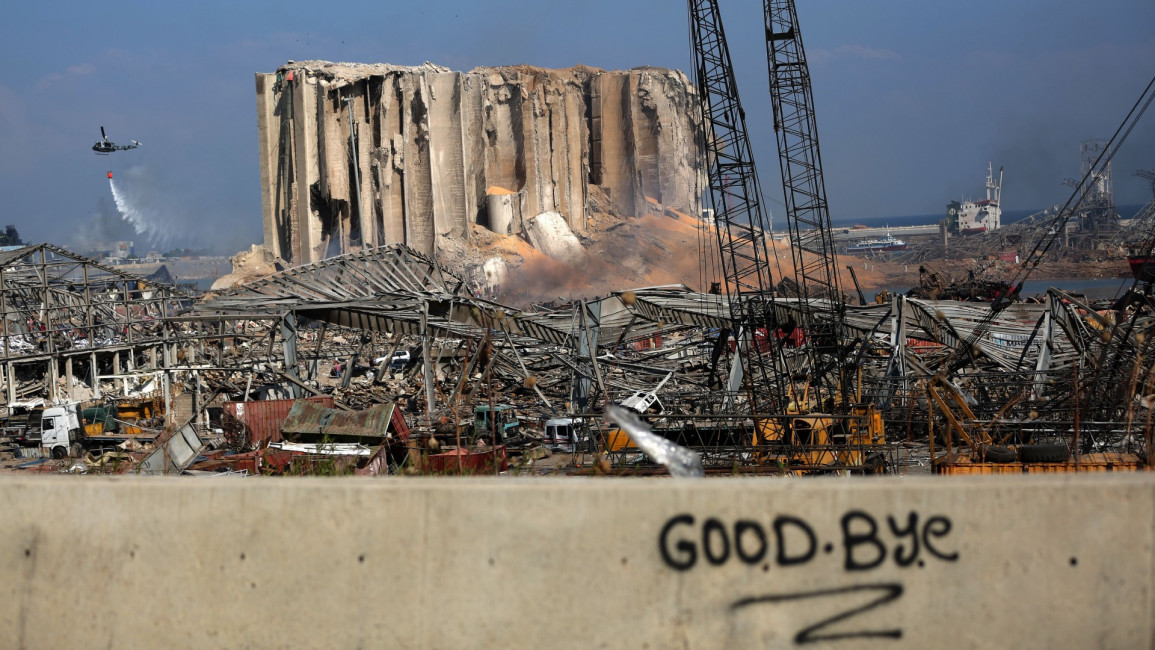IRC warns of dire poverty in Lebanon, one year after Beirut blast
A leading NGO on Tuesday warned that the worsening economic crisis in Lebanon is affecting "almost everyone", as the country marks the first anniversary of a deadly blast that devastated the capital Beirut.
The International Rescue Committee (IRC) said that the vast majority of the Lebanese population had been hit hard by the deteriorating situation since the 4 August Port of Beirut blast, which plunged the country deeper into poverty.
Before the blast, Lebanese already struggled with high unemployment, rising living costs, and bank accounts being frozen, following the dramatic deterioration of the Lebanese lira.
One year later and the situation only looks bleaker, said Mohammad Nasser, Acting Country Director for the International Rescue Committee in Lebanon in a statement.
"The situation is getting worse by the day and people are struggling to make ends meet. In March this year, those reporting daily wages as a key source of their household's income dropped to just 40 percent of respondents, and 42 percent reported that they had faced excessive wage reductions," said Nasser.
TW // port blast
— Elias Jahshan | الياس جهشان (@Elias_Jahshan) August 3, 2021
Since the Beirut port blast, Lebanon's crises have spiralled. Already marginalised, the city's LGBTQ+ community now faces a homelessness crisis, according to an Oxfam report. In my latest for @The_NewArab, I spoke to some queer Beirutis:https://t.co/txSzo5hVBE
"With the looming threat that subsidised food items - such as cooking oil and infant formula - will soon no longer be available, we are extremely concerned that many of those already struggling, will soon be plunged into complete destitution."
Children are among the hardest hit by the economic crisis. A dramatic fall in living standards means that more and more families are sending their children out to work, sometimes becoming the main breadwinners in households. Even then, their combined incomes are barely enough to feed their families, with meals often rationed to just two a day.
Eighty-four percent of working children that the IRC spoke to said they worry about their families being able to eat and more than half admitted to going to bed on an empty stomach. Babies and infants are also suffering.
"People fear eviction because they cannot afford to pay their rent and already, mothers have told us that they have resorted to diluting cows' milk with water because they can no longer afford to buy infant formula to feed their children," said Nasser. "But the difficulties and the suffering do not stop there. Barely anyone is exempt from these struggles."
The IRC said the disabled are in particular struggling, with specialised care often no longer available and funding to support them reduced, while the elderly have also seen their life savings withered away due to the lira in freefall and the rising cost of essentials, such as rent and food.
The IRC said the crisis is having a huge mental toll on Lebanese of all ages and backgrounds, with international help perhaps the only way to stop the situation from getting worse.
"Across the country, people are at their wits' end. They are losing hope. Even my own colleagues are finding it hard to see how things will get better. The emotional strain people in Lebanon are under is immense," said the IRC director.
"The gravity of the current situation cannot be overstated. One year on from the blast in Beirut, the country needs more support than ever. The international community rallied round in the immediate aftermath of the explosions, and it is vital that this support continues so that the country can get back on its feet."



